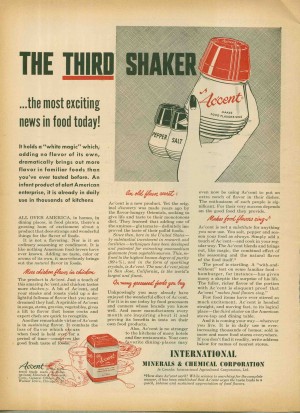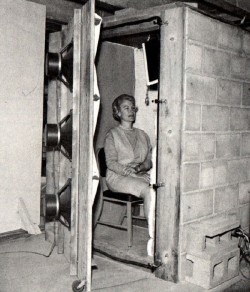Science
Guess the Scientist!
What famous Victorian-era scientist does this passage describe? (Follow the "extended" link for the answer.)He suffered from incessant retching or vomiting, usually brought on by fatigue; and from painful bouts of wind that churned around after meals and obliged him to sit quietly in a private room until his body behaved more politely. Reading between the lines, his guts were noisy and smelly. "I feel nearly sure that the air is generated somewhere lower down than stomach," he told one doctor plaintively in 1865, "and as soon as it regurgitates into the stomach the discomfort comes on." He was equally forthright with his cousin...: "all excitement & fatigue brings on such dreadful flatulence that in fact I can go nowhere." When he did go somewhere, he needed privacy after meals, "for, as you know, my odious stomach requires that."
He also had trouble with his bowels, frequently suffering from constipation and vulnerable to the obsession with regularity that stalked most Victorians. He developed crops of boils in what he called "perfectly devilish attacks" on his backside, making it impossible to sit upright, and occasional eczema. There were headaches and giddiness. He probably had piles as well.
More in extended >>
Posted By: Alex - Sun Sep 07, 2008 -
Comments (2)
Category: Medicine, Quizzes, Guess the Scientist, Science
One Touch of Homer Makes the Whole World Kin
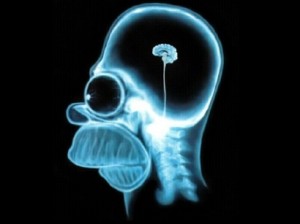
After briefly distracting the patients, the researchers then asked them to think about the clips for a minute and to report “what comes to mind.” The patients remembered almost all of the clips. And when they recalled a specific one — say, a clip of Homer Simpson — the same cells that had been active during the Homer clip reignited. In fact, the cells became active a second or two before people were conscious of the memory, which signaled to researchers the memory to come.
Why is Homer Simpson singled out as the test case? Obviously because the human brain has specific neurons that emulate or actually induce and compel Homer-Simpson-style behavior.
And there in a nutshell you have the whole basis for ninety-nine percent of the contents of WEIRD UNIVERSE.
Posted By: Paul - Fri Sep 05, 2008 -
Comments (13)
Category: Celebrities, Science, Experiments, Psychology, Stupidity, Television, Husbands, Cartoons
Follies of the Mad Men #22
[From Newsweek for September 25 1950.]Pure jittery brainbuzz in a handy grenade-shaped shaker.
Beware of putting anything in your mouth that comes from a company named "International Minerals & Chemical Corporation."
Posted By: Paul - Wed Sep 03, 2008 -
Comments (2)
Category: Business, Advertising, Food, Inebriation and Intoxicants, Science, Technology, 1950s
Chocolate Teapots
Back in 2001, Simon Bradshaw and his colleagues published a tongue-in-cheek article in Plotka analyzing the utility of a chocolate teapot. They were inspired by the phrase (common in the UK) that something is as "useful as a chocolate teapot." Their conclusion was that chocolate teapots are indeed not very useful since they leak everywhere, and therefore they "serve as an excellent baseline of uselessness against which to compare other, similarly dysfunctional, items."The article became a minor classic of scientific humor. (Yeah, science humor tends to be a bit nerdy) and was replicated by other researchers.
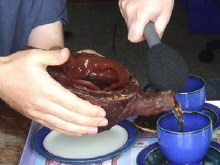
The main structural design defects were the lid, which melted, and the spout, which collapsed after the tea was poured.
Posted By: Alex - Wed Sep 03, 2008 -
Comments (1)
Category: Food, Science
Do pets make you snore?
A recent study published in the journal Respiratory Research found a correlation between growing up with dogs and snoring as an adult. The authors found the correlation after giving a questionnaire about snoring frequency to 16,190 randomly selected men and women. The other factor associated with habitual adult snoring was growing up in a large family. The authors conclude:Their theory sounds rather unlikely. After all, correlation does not equal causation. I grew up with a dog, and I don't snore. But then, my family wasn't very large either. (Thanks to KT Jayne!)
Posted By: Alex - Tue Sep 02, 2008 -
Comments (1)
Category: Pets, Dogs, Science
Help Zimbardo Study Helping
Dr. Phil Zimbardo, famous for conducting the Stanford Prison Experiment which revealed how quickly average college students will embrace the roles of sadistic prison guards and passive prisoners, and most recently author of The Lucifer Effect, is now turning his attention to helping behavior. From the hero workshop blog (via boing boing):The first step is to conduct a survey with as many participants as possible. That’s where you come in. The survey takes about 30 minutes and can be found at www.socialpsychresearch.org.
I took one look at the length of time and thought, "30 minutes! I don't want to take a survey for that long!" I'm basically unhelpul and selfish. But this made me realize that the only people taking the survey will be those that are more helpful than most. It'll be a biased sample.
Zimbardo and his co-researchers are very smart people, so I'm sure they realize this. I'm guessing that the real purpose of the survey may be to find out how many people actually take it, versus how many visit the link. That could provide a quick snapshot of how many helpful people there are on the internet. (Thanks to Joe Littrell!)
Posted By: Alex - Wed Aug 27, 2008 -
Comments (1)
Category: Science, Experiments, Psychology
Cow Compass
New evidence of the hidden talents of cows. Research published in the Proceedings of the National Academy of Sciences suggests that cows have some kind of built-in compass that allows them to align themselves along a north-south axis while grazing in fields. The researchers found this out by studying thousands of satellite photos of cows from all over the world.But another scientist noted, "the study is based entirely on correlations. To demonstrate conclusively that cattle have a magnetic sense, some kind of experimental manipulation will eventually be needed." That sounds like a bizarre experiment waiting to happen!
Posted By: Alex - Tue Aug 26, 2008 -
Comments (4)
Category: Science, Cows
Sonic Boom Simulation Chamber
During the 1960s NASA sponsored research into the effect of sonic booms on human subjects. This was in response to growing concern about "the nature of the boom phenomena" as supersonic aircraft were flying with increasing frequency. Shown in the picture is one subject (unidentified) about to be locked inside the "Sonic Boom Simulation Chamber."I like the juxtaposition of the prim-and-proper woman and the massive audio system. Unfortunately there aren't any pictures of what she looked like after being repeatedly blasted with simulated sonic booms.
The image comes from NASA Contractor Report CR-1192, "Relative Annoyance and Loudness Judgments of Various Simulated Sonic Boom Waveforms."
Posted By: Alex - Wed Aug 20, 2008 -
Comments (2)
Category: Science, Experiments, Technology
Super Cows
These cows have to be seen to be believed. I wouldn't want to be in their sights should one of them decide to attack. Though it doesn't look like they could move very fast.
Posted By: Alex - Wed Aug 20, 2008 -
Comments (0)
Category: Science, Cows
Catatonic Rats
Old science books and articles are a great source of weird images. For instance, I found the two pictures below in Of Mice, Men and Molecules by John Heller (published in 1960). The images are titled "Catatonic rats" and have this explanatory caption:Unfortunately, Heller doesn't reveal what the chemical is that caused the rats to freeze in these positions. My guess is that it's LSD.
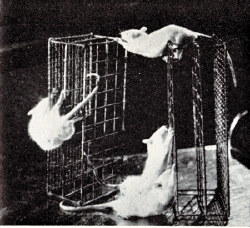 | 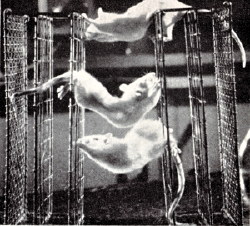 |
Posted By: Alex - Mon Aug 18, 2008 -
Comments (3)
Category: Animals, Drugs, Science, Experiments

| Who We Are |
|---|
| Alex Boese Alex is the creator and curator of the Museum of Hoaxes. He's also the author of various weird, non-fiction, science-themed books such as Elephants on Acid and Psychedelic Apes. Paul Di Filippo Paul has been paid to put weird ideas into fictional form for over thirty years, in his career as a noted science fiction writer. He has recently begun blogging on many curious topics with three fellow writers at The Inferior 4+1. Contact Us |

